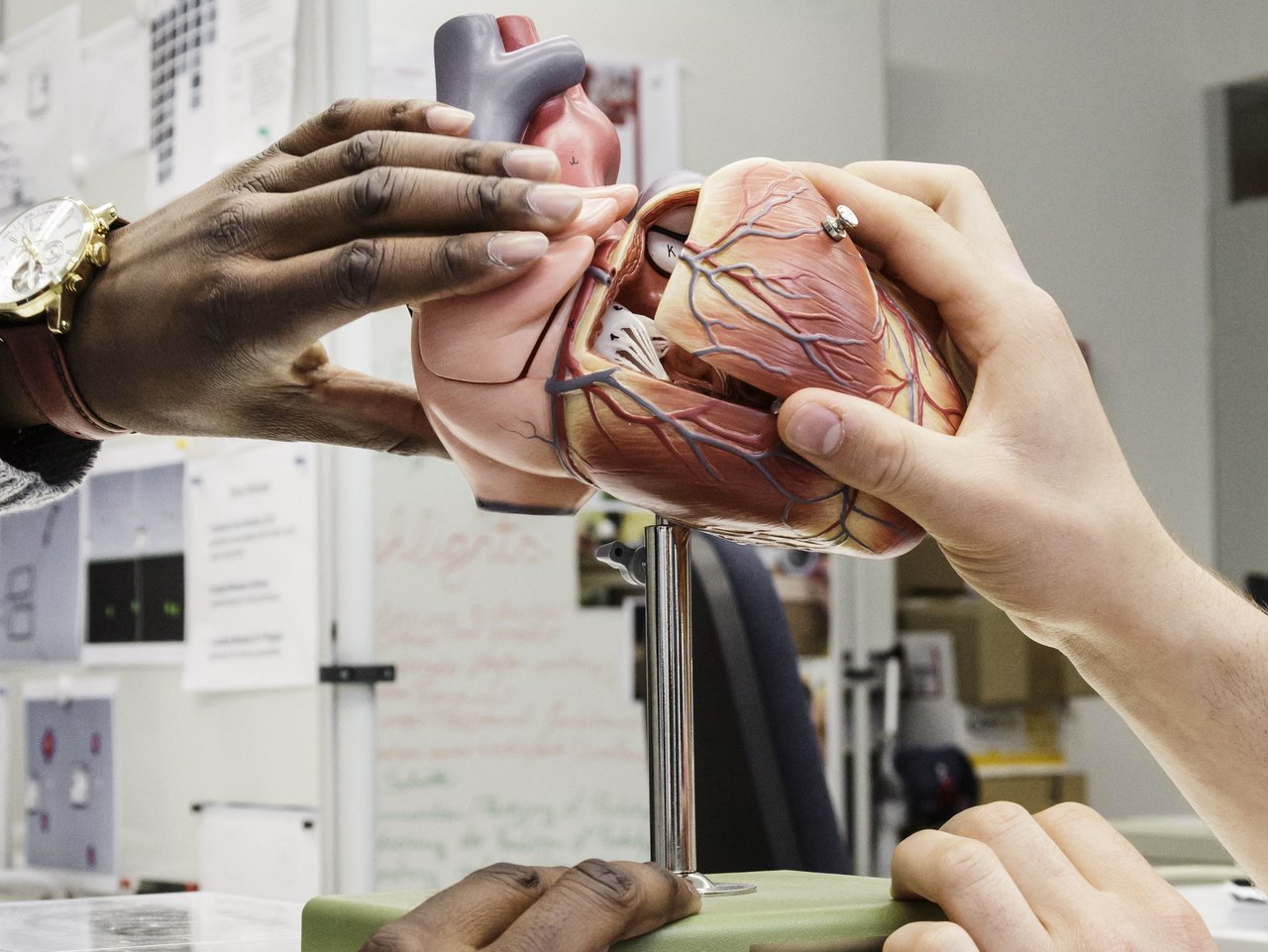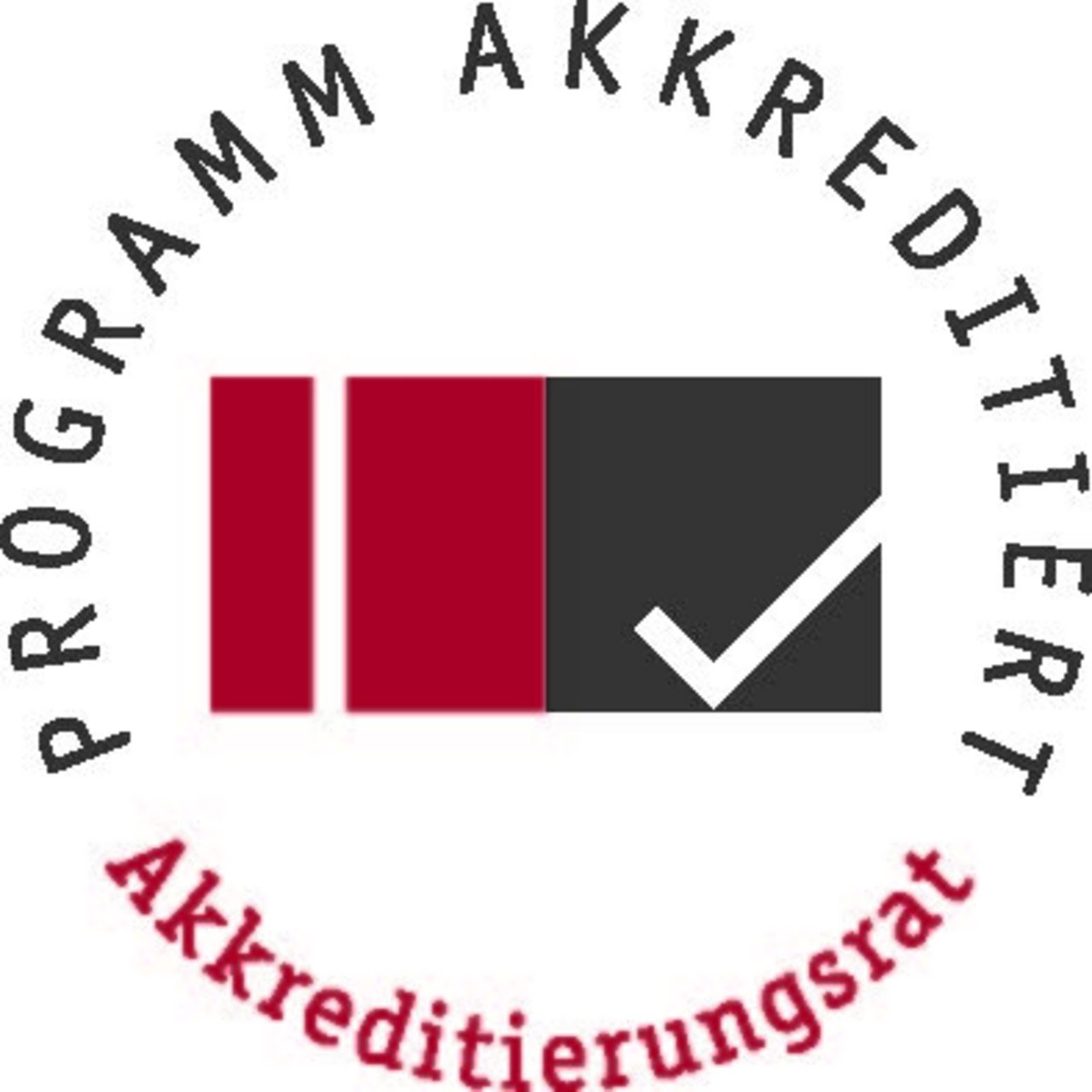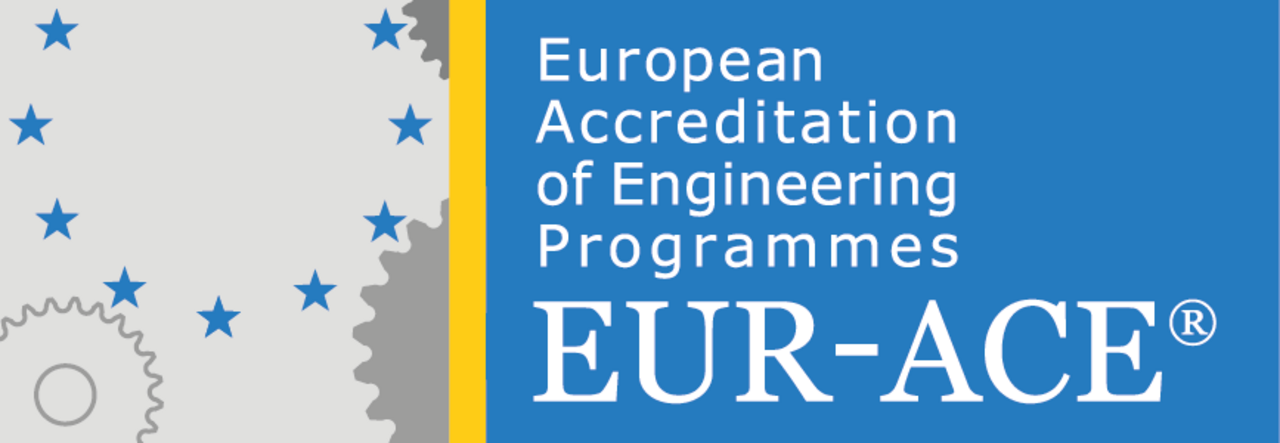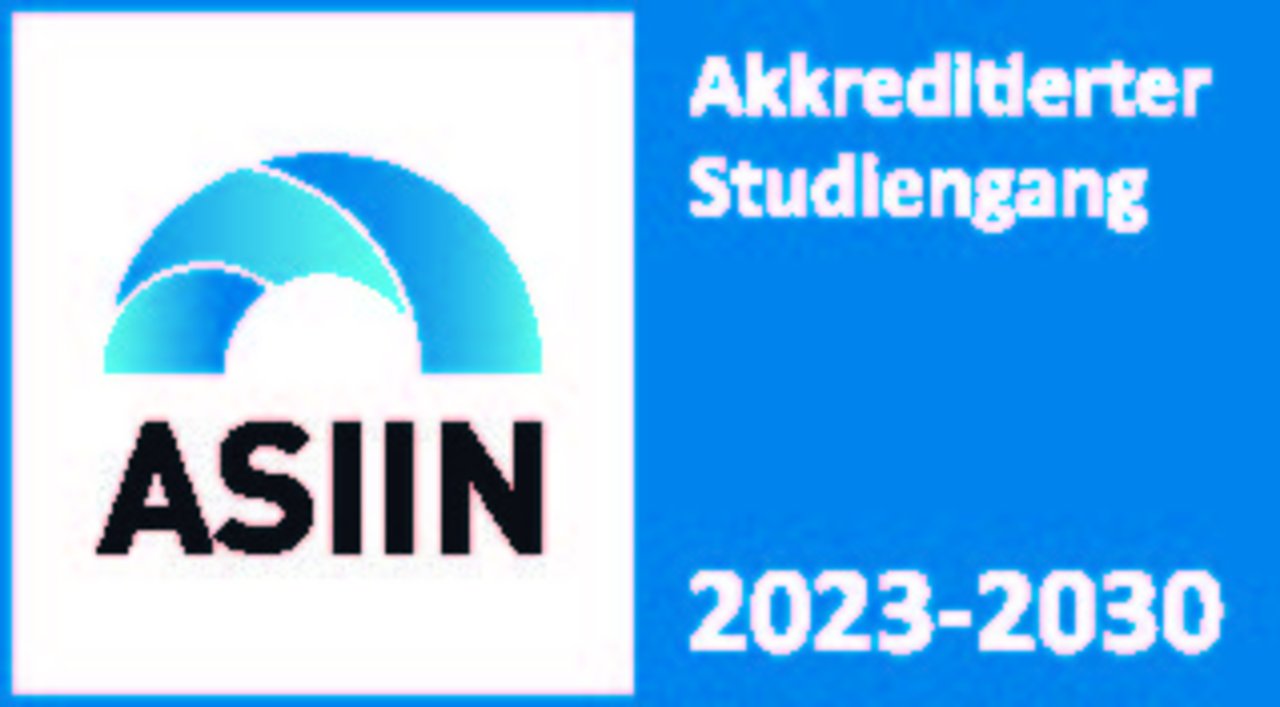



Accredited degree program
Biomedical technology
Bachelor of Engineering
Design innovative medical technology solutions for the future and help people to improve their health and quality of life!
| Start | Winter semester |
|---|---|
| Admission Criteria | Open admission (no numerus clausus) |
| Application period | 15.04.2025 - 15.09.2025 |
| Study format | Full time |
| Study cost | None (only semester fee) |
| Normal duration | 7 Semester |
| Language | German |
| ECTS | 210 |
| Accredited degree program | |
   | |
Programme content
The interdisciplinary Biomedical Engineering degree programme teaches basic knowledge of electrical engineering, biomedicine and business administration as well as specific knowledge of medical technology. This includes systems engineering in medical technology, medical imaging, medical optics and laser technology as well as software development in medical technology.
The programme content is future-oriented, interdisciplinary and practical. The theoretical knowledge acquired is also consolidated in laboratory practicals specifically tailored to the modules.

Study programme
The degree programme has a modular structure and allows students to create their own individual profile in the specialisation programme with compulsory elective modules. A total of 210 ECTS credits are earned.
In the 1st and 2nd semesters, students learn the basic electrotechnical and biomedical modules. The 3rd and 4th semesters serve to deepen and expand the knowledge acquired so far through advanced and new modules, particularly in the field of medical technology.
The 5th semester is the practical semester. It comprises at least 80 working days in an internship company and can be completed in Germany or abroad. The practical work is accompanied by a practical seminar organised by the university.
The specialisation programme begins in the 6th semester, in which students take modules in medical technology with a total of 30 ECTS credits. Additional skills and competences can be acquired through further compulsory elective modules to create an individual profile. The programme concludes with the Bachelor's thesis, which usually takes two months and is assessed with 12 ECTS credits.
Modules
Basic and advanced modules in the 1st-4th semester (examples):
Biomedical fundamentals, fundamentals of electrical engineering, fundamentals of business administration, fundamentals of medical imaging, fundamentals of medical device technology, engineering mathematics, computer science, physics, electronics and measurement technology, microcomputer technology, control engineering, project management,
Practical phase in the 5th semester:
Practical time in the company, practical seminar, Studium Generale
Specialisation studies in the 6th and 7th semesters (examples):
Modules on (bio)medical technology: sensor technology in medical technology, biosignal processing, minimally invasive procedures, medical optics and laser technology
Compulsory elective modules: e.g. biomedical engineering project work, product management and technical sales, robotics, machine learning, medical image processing, procurement/production and logistics, design work in medical technology, computer-aided measurement technology
Computer science module: Software development in medical technology
Practical orientation
All degree programmes at the Faculty of Electrical and Industrial Engineering are characterised by a high degree of practical and application orientation.
In addition to the theoretical lectures, many of the modules on offer include laboratory practicals with specific content. In these, the theoretical knowledge acquired is tested, expanded and consolidated in practice in our more than 20 modern laboratories. Project work also serves to creatively and practically implement what has been learnt.
In the 5th semester, students also complete a practical semester of at least 80 working days in a company of their choice in Germany or abroad.




